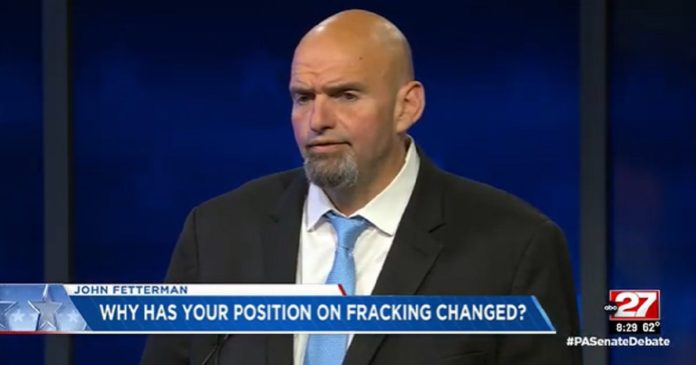The host of the Fetterman-Oz U.S. Senate candidate debate held Tuesday night in Harrisburg, Pennsylvania blasted the Fetterman campaign for trying to blame the closed captioning system demanded by recovering stroke victim Fetterman for Fetterman’s train wreck performance.
Following the debate, Fetterman’s campaign issued a statement claiming Fetterman did “remarkably well”, but criticized the closed captioning (via Axios):
“We are thrilled with John’s performance. He did remarkably well tonight – especially when you consider that he’s still recovering from a stroke and was working off of delayed captions filled with errors.”
Debate host Nexstar was having none of it, blasting Fetterman for not taking advantage of both dry runs offered to the Fetterman and Oz campaigns before the debate.
Nexstar statement via subsidiary NewsNation:
Chief Communications Officer Gary Weitman said in a statement: “It is unfortunate that Mr. Fetterman is now criticizing the closed captioning process employed by Nexstar during tonight’s debate. Both candidates agreed to the technical set-up for the closed captioning process weeks ago, which was implemented at the request of the Fetterman campaign. “Both candidates were offered the opportunity for two full rehearsals with the same equipment used in tonight’s debate; Mr. Fetterman chose to do only one,” Weitman said in the statement. “In fact, Nexstar’s production team went to extraordinary lengths to ensure the effectiveness of the closed captioning process, and to accommodate several last-minute requests of the Fetterman campaign. The closed captioning process functioned as expected during rehearsal and again during tonight’s debate. We regret that Mr. Fetterman and his campaign feel otherwise.”
The statement was re-released Wednesday morning:
Before the debate, the Fetterman campaign sought to lower expectations, issuing a statement pre-blamimg the closed captioning for Fetterman’s expected poor debate performance (excerpt).
We are prepared for Oz’s allies and right-wing media to circulate malicious viral videos after the debate that try to paint John in a negative light because of awkward pauses, missing some words, and mushing other words together. The captioning process may also lead to time delays and errors in the exchanges between the moderators and the candidates. In fact, because the captions are going to be typed out by human beings in real-time, on live TV, some amount of human error in the transcription is inevitable, which may cause temporary miscommunications at times. It is impossible to control and unavoidable. That’s OK – what matters is that people get to see and hear John’s values.
“John has had a remarkable recovery, but the ongoing auditory processing challenges are real. The campaign insisted on closed captioning technology because it’s necessary. But he’ll be open and upfront about those challenges, just like he has been in interviews and at rallies for the past few months. John knows this will not be easy, but he is showing up because Pennsylvania voters deserve to hear from their candidates for the Senate.



